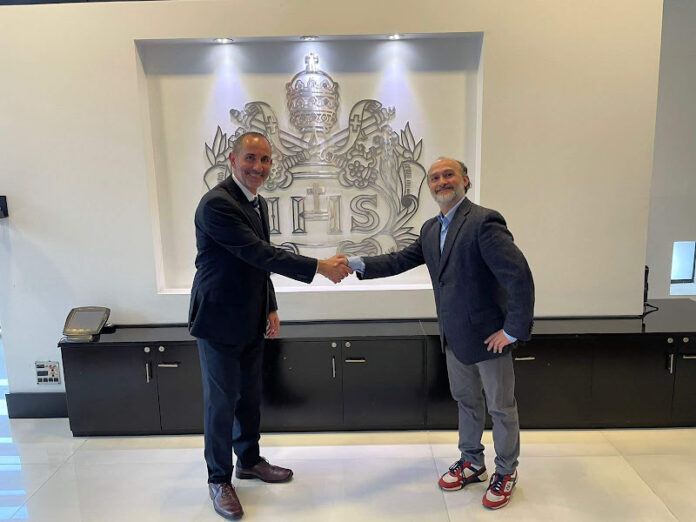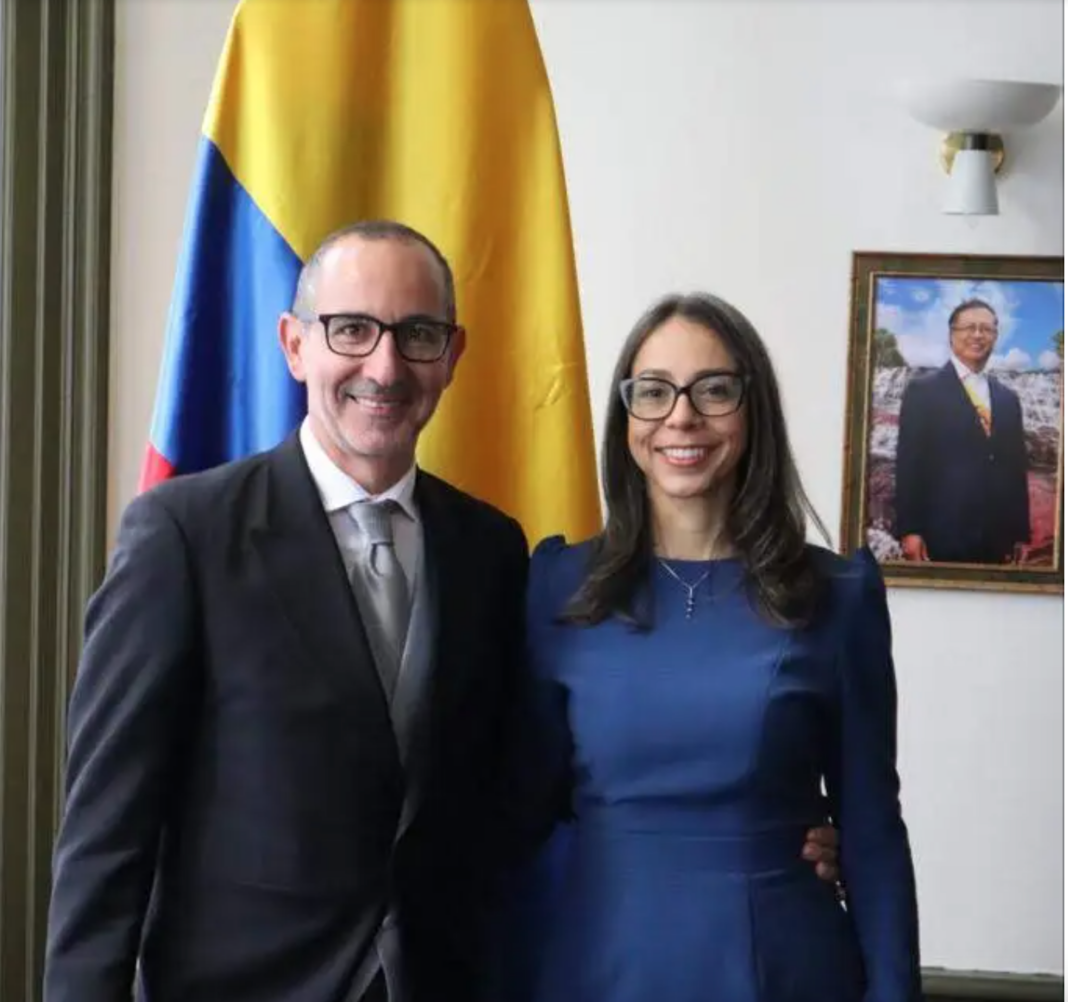By Alexandra Paucescu
As diplomats, we learn to build intercultural bridges, we form alliances and we get to master to perfection the art of conversation. We were not all prepared or formally trained for it; some just learned it along the way. For others, it was part of their career and a life time passion.
Giovanni Calvano is one of those people, who made a career out of the intercultural dialogue and international relations and who was lucky enough to be able to practice it in his future diplomatic life.
Born in Paola, a beautiful little town in Calabria, southern Italy, he fondly remembers his childhood years: ‘I feel lucky having grown up there, in a quiet place where everyone knew each other, where I played with my friends all day in the courtyards until mom yelled from the balcony “back home, it’s late”. I remember the endless hot summers on the beautiful beaches’. It certainly sounds idyllic and worry-free, as every childhood should be.

His life changed thanks to an Erasmus study program in the UK. Although he was studying economics at the University of Calabria, his career path took a turn, and he decided to continue his education in international and public relations. (He later completed two masters, at the University of Mantova and University of Rome).
‘I was feeling more and more like a real global citizen and my happiness grew beyond borders. Now I feel good and happy in any place where I can share the little beautiful things of life with my wife and kids’.
‘I started working in Rome for an association where I was in charge of managing the European youth exchange program; then I moved to the International Development Law Organization (IDLO), where I had the opportunity to work with many diplomatic missions and international organizations. Finally, I crossed the Atlantic to Colombia, starting a wonderful collaboration with the Pontificia Universidad Javeriana of Bogota. I currently hold the position of director of international affairs at the oldest and most prestigious university in Colombia, which is a great experience that allows me to move in the context of the internationalization of higher education. Javeriana university aims to improve education and research, but also promoting “ the common home”, as a commitment to improving the society, and this is perfectly in line with my job, which is to lead the international academic collaboration of the Javeriana university with others abroad. This allows me to continue my duties while being posted in the Netherlands. Also, I feel privileged because living a diplomatic life certainly gives an added value to my work. Moreover, the excellent and strategic geographical position of the Netherlands greatly facilitates me reaching out to local universities and expand my network at an European level’.
He continues, passionately: ‘living in the Netherlands, a unique country where many cultures coexist and interact, is an ideal opportunity to promote, in my case through university collaborations, Colombia and its beauties, art, traditions, culture and its excellent higher education’.
He clearly enjoys and fully appreciates the life and the city he lives in today. ‘I love to visit museums with my kids, to get lost in Hague’s wonderful parks or to follow my passion for international eno-gastronomy, because I am convinced that inter-culturalism also comes through the art of eating and drinking well, it’s a magnificent facilitator for dialogue between people.
I can honestly say that living a diplomatic experience abroad represents the realization of a dream. Being able to meet and interact with people from all over the world is wonderful. It is like a long journey across continents, but staying in one place. You learn so much every day, different points of view and opinions. To me, it’s a unique richness, hardly replicable in other contexts; and being able to also give this opportunity to my children is just fantastic!
However, I believe that the diplomatic life requires navigating within some constraints, prudence, tact, patience, open-mindedness and surely tolerance. The permanent dialogue is essential. Meanwhile, I believe that it is crucial to remain humble, be curious and understand the ecosystem in which we live, abandoning prejudices and not forgetting that we represent our countries on a daily basis. The role of a diplomatic spouse is much more than accompanying the partner, it is an honor’.

But then again, ‘people tend to only notice the beautiful side of diplomatic life, often “fueled” by movies, fiction books, and it is therefore easy to imagine a life with only daily parties and travels, disregarding the sensitive work commitments, the compromise. It can also be sometimes hard and emotionally difficult. You build a circle of friendships and a social life that you eventually have to leave behind after a few years, only to rebuild it in another place. The difficulty and, in many cases, the impossibility to develop your own steady and successful career may also be seen as a sacrifice’.
Above all that hardship, he says he is most proud of his wife and of all she can do for Colombia. In a world which is still strongly patriarchal, it is a pleasure to hear a man praising his wife in such a way: ’my wife is an incredible person and a great professional, I feel really lucky. We share the same passions, we love the inter-culturalism. I really enjoy talking to her and when I may, offer some small advice. I am sure that family stability is critical for the success of a diplomatic mission’.
He is equally fond of the couple’s children, who already master three different languages from a small age.
‘I feel also proud when I see students of my university returning happily and completely changed after a study experience abroad. I am proud because I know that even if I contribute in a small part to their formation, it may be decisive for their future, their work, and why not, to create a better world’.
…And the world certainly needs more people like him today.
About the author:

Alexandra Paucescu- Author of “Just a Diplomatic Spouse” Romanian, management graduate with a Master in business, cultural diplomacy and international relations studies.
She speaks Romanian, English, French, German and Italian, gives lectures on intercultural communication and is an active NGO volunteer.



